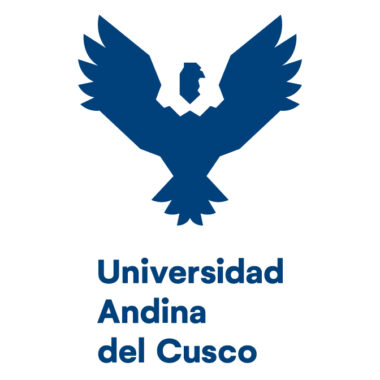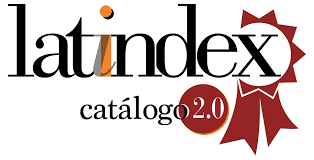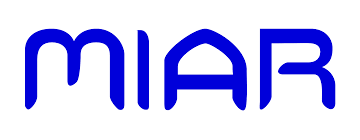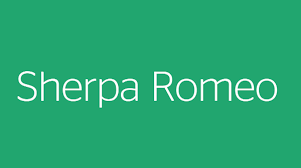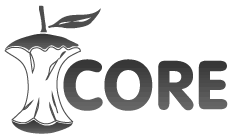Construcción de teorías científicas: nuevos enfoques e implicaciones en la tesis doctoral
DOI:
https://doi.org/10.36881/yachay.v12i2.751Palabras clave:
teoría científica, construcción de teoría, enfoque de investigación, tesis doctoralResumen
El presente artículo se planteó como objetivo analizar el proceso de construcción de teorías científicas y sus implicaciones en la elaboración de la tesis doctoral. Para cumplir dicha meta se realizó una revisión tradicional de la literatura que incluyó el análisis de fuentes documentales clásicas y contemporáneas, localizadas en importantes bases de datos como WOS y Scopus. El producto del trabajo realizado describe los distintos métodos lógicos y enfoques de investigación empleados para generar teorías, con la finalidad de aportar nociones básicas acerca de la construcción de teorías y contribuir a dilucidar asuntos que generan constantes dudas en los doctorandos. Por último, se proponen algunos procedimientos para la construcción de teorías, dejando claro que los esquemas propuestos y secuencias son flexibles y que pueden ser adaptados en función de la naturaleza del objeto de estudio, los intereses e intenciones de los investigadores y las normas de cada institución.
Descargas
Citas
Amadi, A. (2023). Integration in a mixed-method case study of construction phenomena: from data to theory. Engineering, Construction and Architectural Management, 30(1), 210-237. https://doi.org/10.1108/ECAM-02-2021-0111
Arias-Odón, F. (2023). Breve glosario de la investigación cualitativa y teoría fundamentada. https://doi.org/10.13140/RG.2.2.29383.47523
Arias-Odón, F. (2018). Diferencia entre teoría, aproximación teórica, constructo y modelo teórico. Revista Actividad Física y Ciencias, 10(2), 7-12. https://doi.org/10.13140/RG.2.2.27810.61128
Arias-Odón, F. (2019). Investigación teórica, investigación empírica e investigación generativa para la construcción de teoría: precisiones conceptuales. https://doi.org/10.13140/RG.2.2.36357.91363
Arias-Odón, F. (2018). La tesis doctoral. El caso venezolano. Revista Paradigma, 39(1), 138-149. https://doi.org/10.37618/PARADIGMA.1011-2251.2018.p138-149.id647
Aslan, A. & Açıkgöz, Ö. (2023). A Systematic Review and Bibliometric Analysis of the Turkish Doctoral Dissertations Completed in the Fields of Social Sciences and Humanities. Üniversite Araştırmaları Dergisi , 6(3) , 238-246. https://doi.org/10.32329/uad.1310803
Borsboom, D., L. J. van der Maas, H., Dalege, J., Kievit, R. & Haig, B. (2021). Theory Construction Methodology: A Practical Framework for Building Theories in Psychology. Perspectives on Psychological Science, 16(4) 756-766. https://doi.org/10.1177/1745691620969647
Bunge, M. (2004). La investigación científica. Su estrategia y su filosofía. Siglo XXI.
Charmaz, K. & Thornberg, R. (2021). The pursuit of quality in grounded theory. Qualitative Research in Psychology, 18(3), 305-327. https://doi.org/10.1080/14780887.2020.1780357
Contreras-Colmenares, A. F., Díaz-Quero, V. R. y Ramírez-Sánchez, R. H. (2023). Fundamentos en la generación de teorías. Areté, 9(17), 11-42. https://doi.org/10.55560/arete.2023.17.9.1
Corbin, J. & Strauss, A. (2014). Basics of Qualitative Research: Techniques and Procedures for Developing Grounded Theory, 4th. Sage Publications.
Estrada-Acuña, R., Arzuaga, M., y Giraldo, C. (2019). La teoría fundamentada clásica : una opción para construir el camino investigativo durante la formación doctoral. Biblioteca LasCasas, 15, 1-7. https://bit.ly/3Rew4kG
Faryadi, Q. (2019). PhD Thesis Writing Process: A Systematic Approach. How to Write Your Methodology, Results and Conclusion. Creative Education, 10, 766-783. https://doi.org/10.4236/ce.2019.104057
García Ríos, A. (2019). Investigación-creación en tesis doctorales de artes y diseño. Revista KEPES, 16(2), 639-671. https://doi.org/10.17151/kepes.2019.16.20.23
Goetz, J. y LeCompte, M. (1988). Etnografía y diseño cualitativo en investigación educativa. Morata.
Grodal, S., Anteby, M. & Holm, A. (2021). Achieving Rigor in Qualitative Analysis: The Role of Active Categorization in Theory Building. AMR, 46, 591-612. https://doi.org/10.5465/amr.2018.0482
Guerrero-Castañeda, R., Prado, M., y Ojeda-Vargas, M. (2016). Reflexión crítica epistemológica sobre métodos mixtos en investigación de enfermería. Enfermería Universitaria, 13(4), 246-252. https://doi.org/http://dx.doi.org/10.1016/j.reu.2016.09.001
Jaccard, J. & Jacoby, J. (2020). Theory construction and model-building skills: A practical guide for social scientists (2nd ed.). The Guilford Press.
Janiszewski, C. & Van Osselaer, S. M. J. (2022). Abductive Theory Construction. Journal of Consumer Psychology (JCP), 32(1), 175-193. https://doi.org/10.1002/jcpy.1280
Kelle, U. (2016). Mixed Methods and the Problems of Theory Building and Theory Testing in the Social Sciences. In S. Hesse-Biber & R. Burke Johnson (eds.), The Oxford Handbook of Multimethod and Mixed Methods Research Inquiry, (pp. 594-605). Oxford University Press. https://doi.org/10.1093/oxfordhb/9780199933624.013.36
Kivunja, C. (2018). Distinguishing between Theory, Theoretical Framework, and Conceptual Framework: A Systematic Review of Lessons from the Field. International Journal of Higher Education, 7(6), 44-53. https://doi.org/10.5430/ijhe.v7n6
Locke, E. A. & Latham, G. P. (2020). Building a theory by induction: The example of goal setting theory. Organizational Psychology Review, 10(3-4), 223-239. https://doi.org/10.1177/2041386620921931
Markovsky, B. & Webster, M. (2015). Theory Construction. In The Blackwell Encyclopedia of Sociology, G. Ritzer (Ed.). https://doi.org/10.1002/9781405165518.wbeost021.pub2
Martínez, M. (2006). Ciencia y arte en la metodología cualitativa. Trillas.
Muñoz Razo, C. (2012). Cómo elaborar y asesorar una investigación de tesis 2ª ed. Pearson.
Nayak, U., Hoogar, P., Mutalik, S., Udupa, N. (2023). Writing a Postgraduate or Doctoral Thesis: A Step-by-Step Approach. In: Jagadeesh, G., Balakumar, P., Senatore, F. (eds). The Quintessence of Basic and Clinical Research and Scientific Publishing. Springer. https://doi.org/10.1007/978-981-99-1284-1_48
Nunez Moscoso, J. (2019). Razonamiento abductivo: una contribución a la creación del conocimiento en educación. Cadernos de Pesquisa, 49(171), 308-329. https://doi.org/10.1590/198053145255
Palacios Rodríguez, O. (2021). La teoría fundamentada: origen, supuestos y perspectivas. Intersticios sociales, (22), 47-70. https://bit.ly/49WBRCz
Passey, D. (2020). Theories, theoretical and conceptual frameworks, models and constructs: Limiting research outcomes through misconceptions and misunderstandings. Studies in Technology Enhanced Learning, 1(1), 1-35. https://doi.org/10.21428/8c225f6e.56810a1a
Parija, S. C. & Kate, V. (Eds.). (2018). Thesis Writing for Master's and Ph.D. Program. Springer.
Phillips, E., Johnson, C. & Pugh, D. (2022). How to Get a PhD: a Handbook for Students and Their Supervisors 7th. Open University Press / MacGraw Hill.
Ramos Vivas, J. (2019). El arte de la tesis doctoral. Editorial Berenice.
Revilla Herman, E., y Gil Otaiza, R. (2018). La construcción de teorías científicas: Una disertación desde lo pragmático. Revista Dikaiosyne, 33, 195-221. https://bit.ly/3RgWLFd
Sabino, C. (2006). Cómo hacer una tesis y elaborar todo tipo de escritos. Panapo.
Sierra Bravo, R. (2003). Tesis doctorales y trabajos de investigación científica. Thomson.
Swedberg, R. (2016), Before theory comes theorizing or how to make social science more interesting. The British Journal of Sociology, 67, 5-22. https://doi.org/10.1111/1468-4446.12184
Swedberg, R. (2015). The art of social theory. Author.
Swedberg, R. (2014). Theorizing in Social Science: The Context of Discovery. Author.
Swedberg, R. (2017). Theorizing in Sociological Research: A New Perspective, a New Departure? The Annual Review of Sociology, 43, 189-206. https://doi.org/10.1146/annurev-soc-060116-053604
Timmermans, S. & Tavory, I. (2022). Data Analysis in Qualitative Research. Theorizing with Abductive Analysis. University of Chicago Press.
Udo-Akang, D. (2012). Theoretical Constructs, Concepts, and Applications. American International Journal of Contemporary Research, 2(9), 89-97. https://bit.ly/3Rh5maX
Van Rooij, I. & Baggio, G. (2021). Theory Before the Test: How to Build High-Verisimilitude Explanatory Theories in Psychological Science. Perspectives on Psychological Science, 16(4), 682-697. https://doi.org/10.1177/1745691620970604
Varpio, L., Paradis, E., Uijtdehaage, S. & Young, M. (2020). The Distinctions Between Theory, Theoretical Framework, and Conceptual Framework. Academic Medicine, 95(7), 989-994. https://doi.org/10.1097/ACM.0000000000003075
Vila-Henninger, L., Dupuy, C., Van Ingelgom, V., Caprioli, M., Teuber, F., Pennetreau, D., Bussi, M. & Le Gall, C. (2022). Abductive Coding: Theory Building and Qualitative (Re)Analysis. Sociological Methods & Research, 0(0), 1-34. https://doi.org/10.1177/00491241211067508
Warr, M., Mishra, P. & Scragg, B. (2020). Designing theory. Education Tech Research Dev, 68, 601-632. https://doi.org/10.1007/s11423-020-09746-9
Descargas
Publicado
Cómo citar
Número
Sección
Licencia

Esta obra está bajo una licencia internacional Creative Commons Atribución 4.0.
Usted es libre de:
- Compartir — copiar y redistribuir el material en cualquier medio o formato
- Adaptar — remezclar, transformar y crear a partir del material
- El licenciador no puede revocar estas libertades mientras cumpla con los términos de la licencia.
Bajo las condiciones siguientes:
-
Reconocimiento — Debe reconocer adecuadamente la autoría, proporcionar un enlace a la licencia e indicar si se han realizado cambios<. Puede hacerlo de cualquier manera razonable, pero no de una manera que sugiera que tiene el apoyo del licenciador o lo recibe por el uso que hace.


